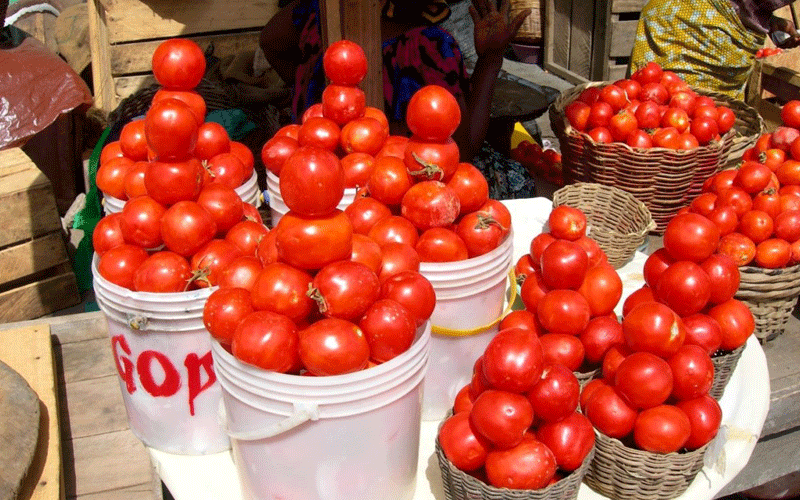High cost of food pushes inflation to 10-month high

Zachary Ochuodho @zachuodho
Increased cost of fuel and vegetables in the month of February saw the cost of living increase to 6.37 per cent compared to 5.78 per cent in January amid mounting pressure on the shilling.
Adverse weather conditions saw figures released by the Kenya Bureau of Statistics (KNBS) tip the cost of food and non-alcoholic beverages by 2.61 per cent, transport 0.12 per cent, clothing and housing at 0.47 per cent, pushing the average inflation of the month, up. February’s cost of living is the highest rate registered since April 2019.
Kenya has in the recent past witnessed a phenomenonal increase in cost of certain commodities with tomatoes and onions topping the surge. One tomato is going for Sh20 in some parts of the country with imports coming from as far as Ethiopia.
Costly groceries
In the food basket the prices of items such as tomatoes, onions, beans and kales (sukuma wiki) increased by 29.59, 7.28 and 3.15 per cent, respectively in February compared to January.
According to KNBS prices of tomatoes increased by 62.4 per cent in February from its selling price in February last year.
“However, prices of mangoes and loose maize grain dropped by 8.39 and 1.3 per cent respectively.
During the same period, housing, water, electricity, gas and other fuels increased by 0.47 per cent,” said KNBS in a statement.
A kilogramme of loose maize grains, a staple food for most Kenyans retailed for Sh50.86 on average, which was a 42.77 per cent rise from Sh35.63 in February 2019.
During the period, other items such as water and electricity, education, gas and other fuel also increased sharply.
Households experienced a reprieve after the cost of 200 units of electricity dropped 0.09 per cent to Sh4.14 per unit.
Data mining
KNBS acting director general Robert Nderitu said the exercise conducted during the second and third weeks of the month obtained data from selected retail outlets in 25 collection zones in Nairobi and in 13 other urban centers.
He said the consumer price index (CPI) increased by 1.38 per cent from 205.40 in January to 208.24 in February.
“The food and non-alcoholic drinks’ index increased by 2.61 per cent between January and February while the year on year food inflation in February stood at 10.58 per cent,” said Nderitu.
John Kirimi, director Sterling Capital said the increase in inflation could also be due to the renewed pressure facing the shilling adding that the increasing cost of fuel would worsen the situation.
Kirimi explained that the high cost of borrowing has also slowed down growth of small and medium enterprises which are regarded as key to creating new jobs under the Vision 2030 economic and social development blueprint.
The Nairobi Stock Exchange, he said, which is regarded as a barometer of investors’ confidence, is having a rough time with most firms reporting reduced earning while others lay off staff to keep afloat.








